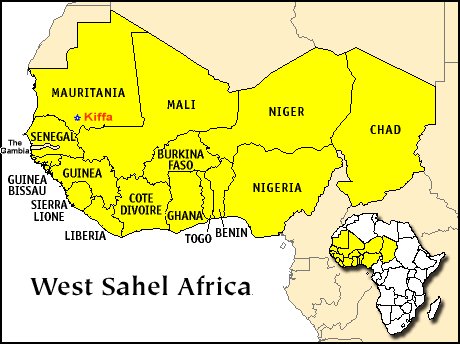
The American Secret Services have just accomplished a major task. They have arrested three Malian citizens known as notorious drug traffickers and members of the Al Qaeda terrorist network. The three were extradited to the United States and risk being condemned to life in prison if the American justice system finds them guilty.
Three Malian citizens were apprehended last Wednesday in Accra, Ghana, by American Secret Service members and were exfiltrated to the United States. The suspects are wanted in the United States for drug trafficking, collaboration with a terrorist organization, and financing terrorist activities through transnational trade in narcotics, especially cocaine. Almost 72 hours after their arrest, Oumar Issa, Harouna Touré and Idriss Abdelrahmane appeared before a tribunal in New York to answer to the charges against them, according to the American press, which commented largely on the almost unbelievable incidents that led to their questioning.
According to the 18-page trial record incriminating the three suspects, there are clear links between South American drug cartels, notably from Colombia (FARC and the Colombian armed forces, NDLR), and the nebulous Islamist Al Qaeda network. To this effect, a press release published in The Washington Post by New York prosecutor Preet Bharara summarizes the concerns of American authorities about the emerging alliance between the Al Qaeda terrorist network and transnational drug traffickers. “The terrorists are trying to diversify their sources of revenue through drug trafficking.”
The three suspects were arrested during an operation coordinated by a New York federal judge and the Drug Enforcement Agency (DEA), based in the United States and in Ghana. According to the American justice system, they risk life sentences in prison if they are found guilty of the acts of which they are accused. Their arrest is very bad publicity for Mali, which is already in the hot seat due to the discovery of the wreckage of a plane that authorities suspect transported cocaine from Latin America to northern Mali, and the kidnapping of a French citizen in Menaka, about 400 km north of the large northern city of Gao.
The suspects were contacted last August by an undercover DEA informant posing as a Lebanese Islamist working for the South American drug cartels, notably Colombian cartels, including that of the Revolutionary Armed Forces of Colombia (FARC). For the past few years, FARC has targeted American citizens for abductions, bomb attacks and other violent acts. All that was needed was for one of the Malians to take the bait. This Malian, Oumar Issa, gave the DEA agent a detailed explanation of the arrangements that allow him to pass drugs through the web of customs authorities without hassle. Issa then promised that he could send the merchandise easily to his associates across the desert. He gave the DEA agent the name of Harouna Touré, whom he described as a principal actor in the network, with contacts in Tunisia. This allowed the DEA agent to meet the latter and verify his identity.
According to the American press, the Malian declared during this meeting “that his organization and Al Qaeda collaborated in human trafficking, notably of the Bangladeshi journalist, Indian citizens and Pakistanis in Spain.” Mr. Touré allegedly also admitted to having played leading roles in attempts to kidnap European expatriates over the past few years. In addition, other American informants who met him last November in Ghana describe him as a king of the desert, just like his accomplice, Abdelrahmane. It should be noted that five other Malian citizens have been arrested recently in Spain for drug trafficking and for sharing intelligence with Osama bin Laden’s Islamist movement.
The Sahel-Sahara band is becoming a favorite region for terrorists claiming to be from the Al Qaeda network and for other drug traffickers. The fight against this scourge is difficult because of the porous borders of this region, where countries share vast expanses of desert, in addition to the weakness of the military and human resources in these states, notably Mali, Mauritania, Niger and Algeria. American authorities that have been trying for years to fight trans-border crime have decided to be more vigilant with regard to what is occurring in this “no man’s land” by infiltrating these small groups of criminals, which run rampant there.

Leave a Reply
You must be logged in to post a comment.